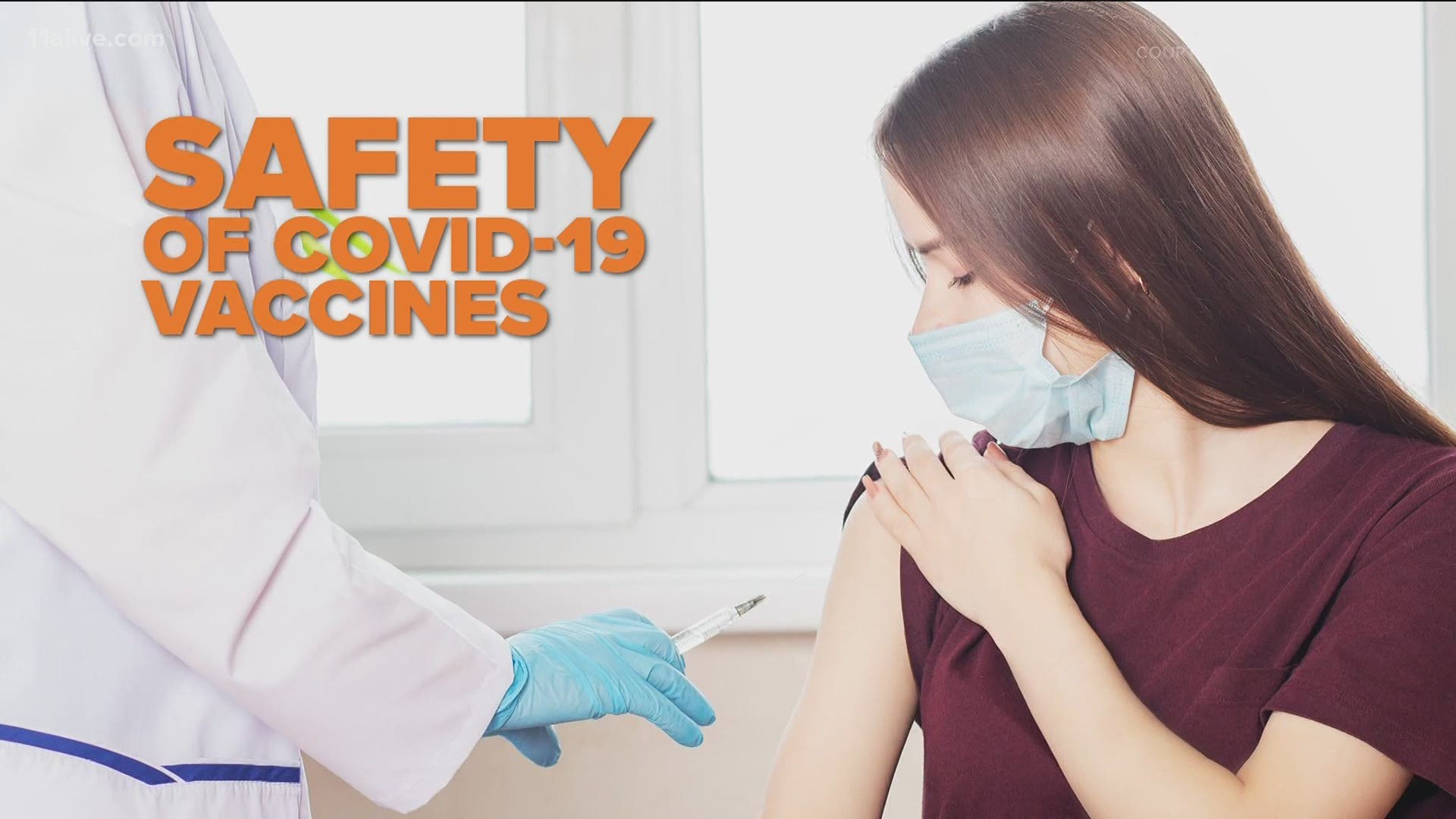ATLANTA — The Centers for Disease Control and Prevention now recommends children as young as 12 can get Pfizer's COVID-19 vaccine. The endorsement came down Wednesday, just as planned new guidelines say it's OK for people of any age to get a coronavirus shot at the same time as other needed vaccinations.
Yet, when it comes to the vaccine and the rollout to kids 12 to 15, doctors know families have questions.
Dr. Evan Anderson and Dr. Andi Shane, both pediatric infectious disease experts with Emory University's School of Medicine and Children's Healthcare of Atlanta, recently held a Facebook Q&A to address lingering concerns.
Both experts agree they have no safety concerns when it comes to the safety of the vaccine for 12 to 15-year-olds.
Dr. Anderson said parents can also be reassured by watching the rollout to older teens.
"The vaccines have been rolling out for them for months now, and indirect data from CDC suggests that probably over several million doses of vaccine have been administered to the 16 and 17-year-olds nationwide," Dr. Anderson said. "And so far, all data looks reassuring."
What do we know about the role of children in the transmission of COVID-19?
"So it's clear that kids can carry as much virus as adults do in their noses when they are infected with COVID-19," Dr. Anderson said. "The older children seem to be perhaps a little bit better at transmitting virus than the younger children are and get it at a relative difference. And the important thing to notice that even the younger children can and do transmit SARS-CoV-2 and so ultimately ensuring that all kids can receive vaccines is actually going to be critically important to ultimately achieving the "herd immunity" that everyone's talking about."
What if your child has already had COVID-19? How important is getting the vaccine?
"It's very important," Dr. Shane said. "We don't know how long immunity from natural infection lasts especially and vaccines are the optimal way of providing protection."
Where do families go to get the vaccine for 12 to 15-year-olds?
President Joe Biden previously said the administration was prepared to ship doses to 20,000 pharmacies around the country and directly to pediatricians as soon as the authorization was made.
"There are lots of opportunities in the community and so obviously pediatricians offices will be offering them and that's one opportunity," Dr. Shane said. "There also will be mass vaccination sites that will continue to offer vaccines to adults and also to children of the 12 to 15-year-old age group. And then there's been a lot of discussions about community-based vaccination clinics in the Atlanta metropolitan area and especially once schools are out of session towards the end of the month, that may provide an opportunity to offer vaccines in a school setting where children are familiar with the local environment."
What are some of the possible long-term effects of a child getting COVID-19?
While children tend to experience mild symptoms or be asymptomatic when it comes to COVID-19, experts say that's not a guarantee.
MIS-C, or multisystem inflammatory syndrome, is one potential long-term effect, though rare.
"We have seen [MIS-C] in over 1000 children in the United States," Dr. Shane said. "That really happens three to four weeks after a COVID infection, sometimes, one that is sometimes not actually recognized."
"The good news does appear to be that the long-term manifestations [of MIS-C] are not significant. However, we still following very closely with cardiology colleagues and others to really understand the effects on the cardiovascular system."
Dr. Shane said doctors are also starting to see long COVID symptoms in kids.
"Symptoms of fatigue, sometimes respiratory challenges and muscle pain and just not being able to be themselves," Dr. Shane explained, comparing such to chronic fatigue syndrome.
Experts said the range of reactions when it comes to COVID-19 in children is still unpredictable.
"Some have basically a mild, runny nose, some never know and some require periods of hospitalization, and others unfortunately die," Dr. Shane said. "So I think that's also another evidence to get vaccinated because you just can't predict what your child will experience."
According to Dr. Shane, the emotional impacts of imposed isolation due to the pandemic and kids not being able to socialize will take generations to fully study.

